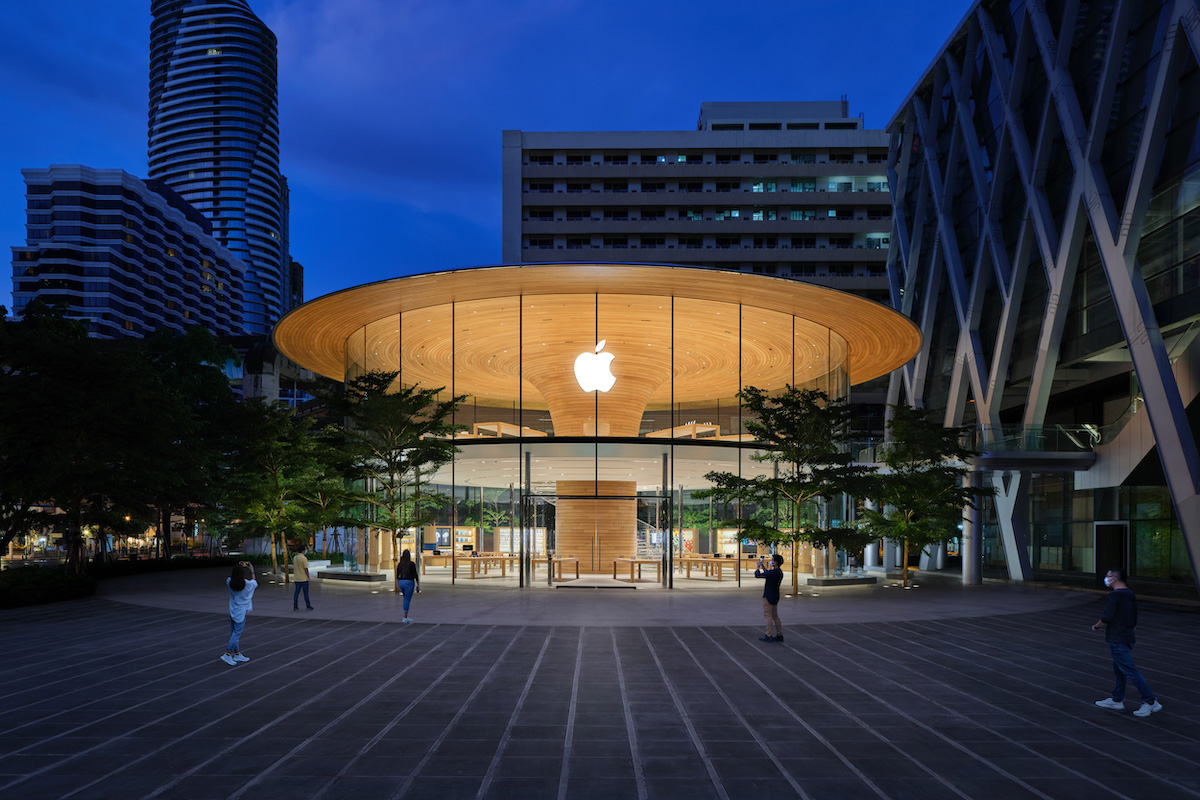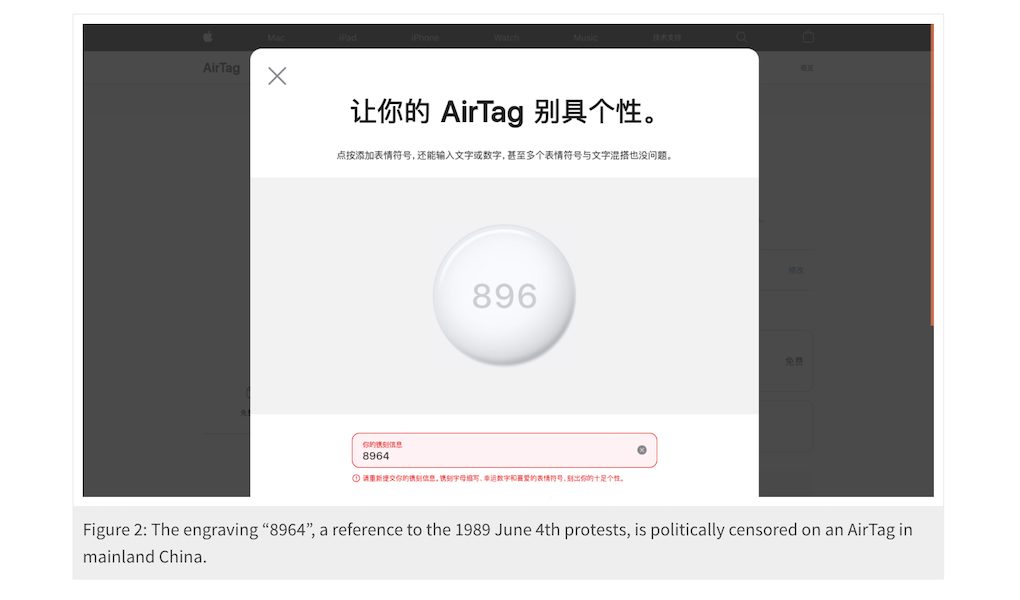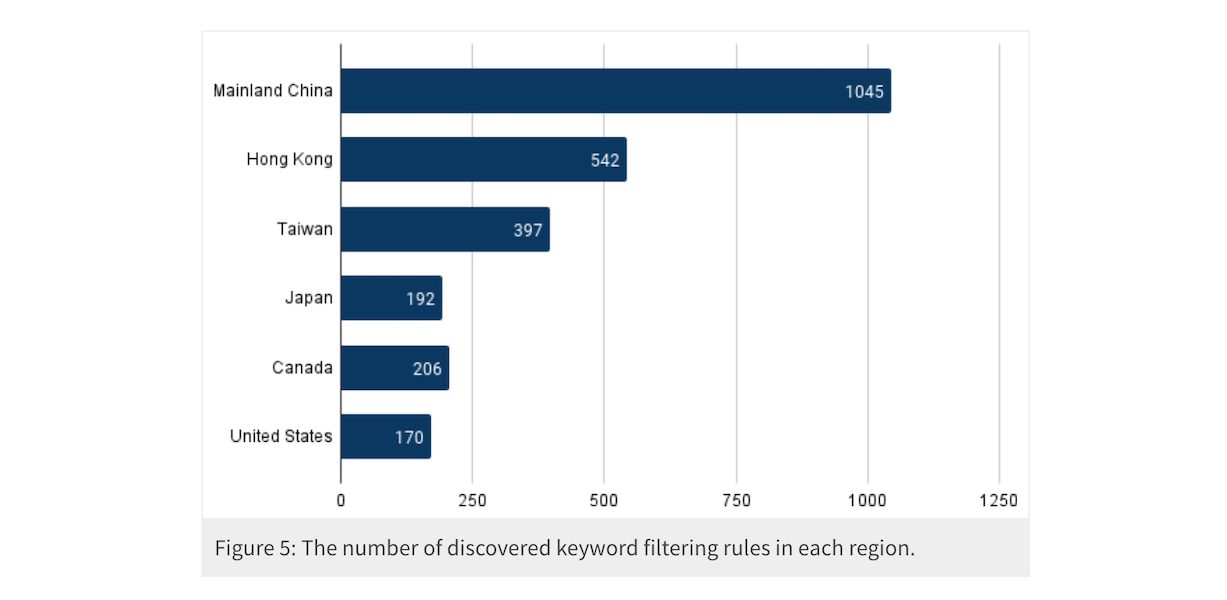In partnership with Munk school of global affairs and public policy and the University of Toronto, The Citizen Lab did an analysis of Apple engraving censorship in six regions: China, Hong Kong, Taiwan, Japan, Canada, and the United States. The investigation revealed that engraving censorship in China mainly of political content and that list of censored items is also applied to Hong Kong and Taiwan, regions which do not obligate Apple to censor political dates, leaders, events, and other items.
The Cupertino tech giant offers a free engraving option on the purchase of iPhone, AirPods, AirTag, and other products. But to ensure that consumers do not choose profanity, racial slurs, sexual or any insensitive word or image, Apple engraving censorship policy uses six filters: security, lowercase, character count, keyword, character, and width. However, the report found that the company’s content moderation is “inconsistently” applied in different regions, is non-transparent and sexist.

Influenced by Chinese law, Apple engraving censorship filtering process put Hong Kong and Taiwan at a disadvantage
As per the report, Apple engraving censorship filtering rules use 1,105 keywords to moderate content across six regions. But the company has failed to produce a document explaining how it compiled the keyword lists and what users cannot engrave on products.
Although the content moderation system has the aforementioned six filters, the investigation focused on keyword filtering because they could “measure the existence of keywords filtered in a region even if those keywords contain characters that are unsupported in engravings for that region.”

Out of six regions, the largest number of keyword filters applied to mainland China with 1,045 predominately political keywords. Those words are also applied in Hong Kong and Taiwan. Japan, Canada, and the United States have fewer restrictions.
In mainland China, Apple widely censors political speech, including broad references such as 政治 (politics), 抵制 (resist), 民主潮 (wave of democracy), and 人权 (human rights). In mainland China, Apple also heavily censors references to Tibet and Tibetan religion. Such keywords include 正法 (dharma), 達賴 (Dalai), and 达兰萨拉 (Dharamshala). Such heavy-handed censorship restricts users’ abilities to freely express themselves politically and religiously.
Much of Apple’s political censorship in mainland China also bleeds into Hong Kong. Furthermore, Apple applies political censorship even to Taiwan, a region where the People’s Republic of China has no de facto governance.

The study concluded that “Apple does not fully understand what content they censor and that, rather than each censored keyword being born of careful consideration, many seem to have been thoughtlessly reappropriated from other sources.” To get an explanation of Apple engraving censorship policy, the organization sent a copy of the report to Apple. Company’s Chief Privacy. Officer, Jane Horvath replied:
We handle engraving requests regionally. There is no single global list that contains one set of words or phrases. Instead, these decisions are made through a review process where our teams assess local laws as well as their assessment of cultural sensitivities. We revisit these decisions from time to time. While those teams rely on information from a range of sources, no third parties or government agencies have been involved the process.
I personally feel that Horvath’s response shows the strong influence of the Chinese government on Apple’s policies in the region. By absolving the Chinese government of imposing strict censorship laws, the company is creating an impression of being subservient to the government.
Read More: